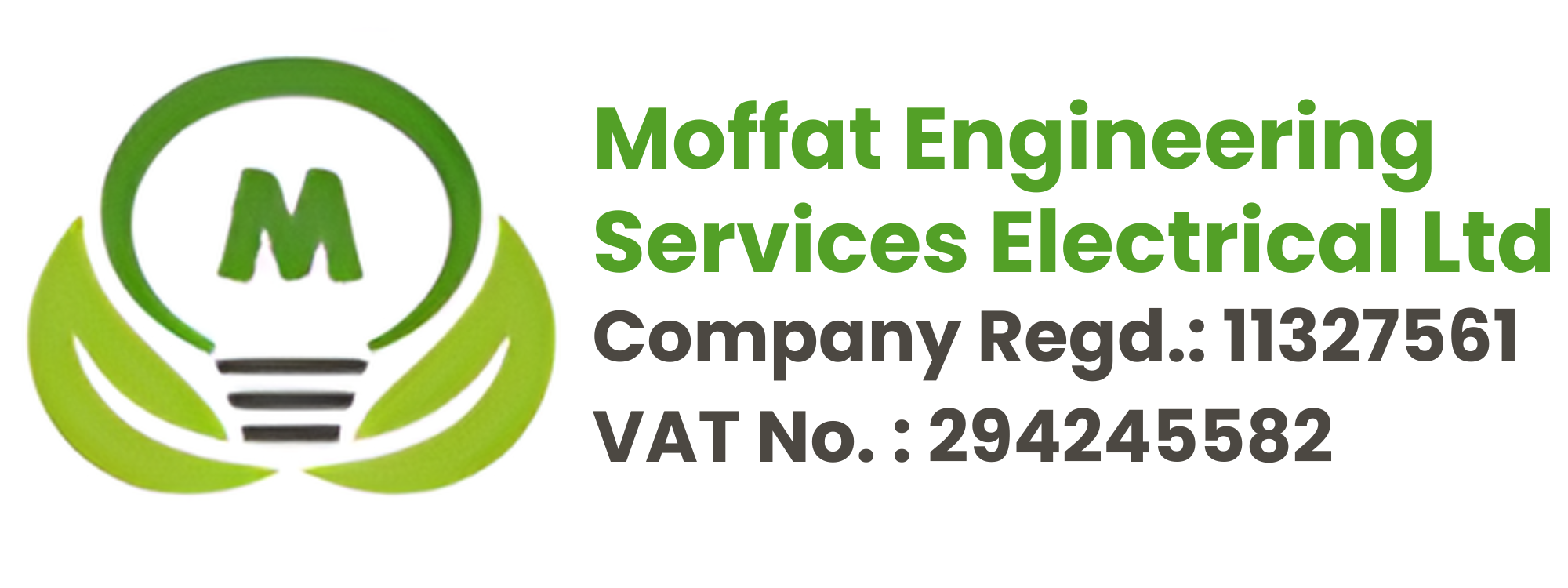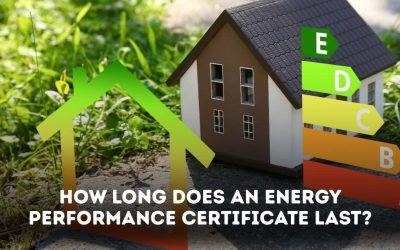Understanding the EICR certificate cost is essential for homeowners, landlords, and businesses. An electrical safety check ensures that your property’s electrical systems are safe, compliant, and in good condition. Whether you’re a landlord ensuring the safety of your tenants, a homeowner maintaining your wiring system, or a business owner meeting regulatory requirements, knowing how much an EICR cost helps you plan effectively.
This article will cover everything from the factors influencing the EICR price to practical tips for saving money on your electrical safety report without compromising on safety or compliance. We’ll also provide a detailed cost guide for both residential and commercial properties, including information on commercial EICR for business owners.
Key Points
- EICR certificate costs for residential properties typically range from £80 to £180.
- Commercial EICR costs usually range from £180 to £500.
- The cost is influenced by factors such as property size, number of circuits, and location.
- Landlords must have a valid EICR certificate for rental properties to comply with legal requirements.
- Save on EICR costs by booking multiple properties or scheduling during off-peak times.
What is an EICR Certificate?

An electrical installation condition report (EICR) is a detailed inspection conducted by a qualified electrician to assess the condition of a property’s electrical installation. This includes checking the electrical components such as wiring, circuits, sockets, switches, and other systems. The installation condition report or EICR ensures that the property is compliant with power safety standards and helps identify any problems that could pose a risk.
For landlords, obtaining a landlord electrical certificate is a legal requirement for all rental properties. This certificate helps ensure the safety of your property and reduces the risk of power-hazards, such as shocks or fires. Obtaining an EICR certificate not only guarantees compliance but also gives you peace of mind knowing your property is safe.
Legal Requirements for Landlords
Under the Electrical Safety Standards in the Private Rented Sector (England) Regulations 2020, landlords must have an up-to-date electrical safety certificate for all rental properties. Failure to comply can result in fines of up to £30,000, along with potential criminal penalties in cases of serious breaches.
Factors That Influence the Cost of an EICR Certificate

Several factors determine how much an EICR costs. Understanding these can help you avoid unnecessary costs and ensure you get the best service for your property.
Property Size
The size of the property is a primary factor affecting the certificate costs. A small flat or apartment will generally cost less for an electrical safety inspection than a larger 4-bedroom house or house in multiple occupation (HMO), which may have more complex wiring systems requiring more extensive checks.
Number of Circuits
The more electrical circuits a property has, the more extensive the inspection will be. If your property has multiple fuse boards, electrical connections, or advanced systems such as arc fault circuit interrupters (AFCI), the inspection will take more time and may cost more. This is particularly important for commercial EICR inspections, where the cost is often calculated per circuit.
Age of the Property
Older properties are more likely to have outdated wiring or electrical work that requires additional attention. An EICR inspection for properties with aging Power systems or minor electrical issues could take longer, increasing the overall cost. Obtaining an EICR certificate for such properties ensures that any safety risks are properly addressed.
Location
Prices for an power safety certificate can vary depending on where the property is located. For example, properties in central London tend to have higher EICR certificate costs compared to properties in rural areas, primarily due to higher labour costs and demand for certified electricians in cities. Regional variations also play a role in how much an EICR certificate may cost.
Additional Services
If your property requires remedial work, such as replacing a fuse box or repairing electrical appliances, the cost will increase. In some cases, you may need a re-inspection after repairs are completed to ensure that all issues have been addressed.
Average Cost of an EICR Certificate
The EICR certificate cost varies based on the property type, its size, and the region. Here’s a typical breakdown of costs for both residential and commercial properties:
Residential Properties (Homeowners)
| Property Type | Price Range (£) | Inspection Time |
| Studio Flat | £80 – £125 | 1 – 2 hours |
| 1-Bedroom Property | £90 – £140 | 2 – 3 hours |
| 2-Bedroom Property | £100 – £150 | 2 – 3 hours |
| 3-Bedroom House | £110 – £200 | 3 – 4 hours |
| 4+ Bedroom House | £180 – £300 | 4 – 5 hours |
Explore the Best Domestic EICR Deals in Your Area
Commercial Properties (Business Owners)
| Property Type | Price Range (£) | Inspection Time |
| Small Commercial Unit (up to 1,850m²) | £200 – £450 | 3 – 4 hours |
| Medium Commercial Unit (1,850m² – 4,000m²) | £500 – £800 | 5 – 8 hours |
| Large Commercial Unit (over 4,000m²) | £800 – £1,500 | 8+ hours |
Explore Best Commercial EICR Prices in London
Additional Costs
- Remedial Work: For tasks like replacing a fuse board or rewiring, the cost can range from £150 to £500, depending on the complexity of the work required.
- Re-inspection: If the property fails the initial electrical safety inspection, you may need to pay for a re-inspection, which typically costs an additional £50 to £100.
5. Why Do EICR Costs Vary?
The EICR price can fluctuate due to several reasons:
- Electrician’s Expertise: Certified electricians with more experience or those registered with professional bodies like NICEIC may charge higher fees, but their work will meet higher safety standards.
- Complexity of the Power System: If the property has a complex system, such as multiple fuse boards or unique electrical fixtures, the inspection will be more time-consuming and expensive.
- Region: Prices in London are generally higher than in rural areas due to the higher cost of living and increased demand for electrical safety inspections.
It’s important to understand what’s included in the price and compare quotes from different electricians to find the best value for your EICR service.
How to Save Money on EICR Certificate Costs

You can save money on EICR testing by following these practical tips:
1. Book Multiple Properties Together
If you own several rental properties, such as multiple flats or homes, book an EICR for all of them at once. Many certified electricians offer bulk discounts when you schedule multiple electrical safety checks together.
This can significantly lower the electrical safety certificate cost for each property. This is especially useful for landlords who need to ensure the safety of their tenants and maintain a valid EICR for all properties. A compliance certificate is essential for legal peace of mind.
2. Schedule Inspections During Off-Peak Times
Another effective way to cut costs is to schedule your electricity safety check during off-peak times of the year. The cost in 2025 and beyond may be lower during months when demand for electrical installation certificates is less, such as during the winter months.
This is when electricians are generally less busy and may offer discounts. Timing your EICR inspection for these months can result in lower overall costs.
3. Avoid Weekend or Evening Appointments
Opting for weekend or evening appointments can often result in higher rates. Some electricians or electrical contractors charge premiums for inspections outside standard working hours. If your Power safety check can be scheduled during normal business hours, you’ll avoid these additional fees. Get an EICR report during regular hours to keep costs at a reasonable level.
4. Understand What’s Included in the EICR
Before scheduling, make sure you fully understand what an EICR includes and how the inspection will be carried out. For example, check if the inspection includes a full electrical safety inspection or if remedial work or re-inspections are extra.
You should ask upfront how much the cost per electrical component or circuit would be if repairs are needed. The more you know, the better you can prepare and avoid unexpected costs for minor electrical work that you might be able to handle on your own.
5. Choose a Certified Electrician with Transparent Pricing
Not all electricians charge the same, and choosing one who provides clear and upfront pricing can save you money in the long run. A qualified electrician or electrical contractor may charge a little more for their services, but this often guarantees a higher standard of work.
A valid EICR should ensure that the safety of the Power installation is fully assessed and compliant with regulations, which can prevent future costs due to electrical failures. Always get a quote that details the costs, including the inspection, potential remedial work, and follow-up visits to ensure you’re not surprised by additional electrical checks or repairs.
6. Start with a Standard Inspection to Keep Costs Down
If you’re on a budget, you may want to consider having a basic inspection before you commit to more extensive testing. Some properties, particularly those that are relatively new and in good condition, may only require a general safety check without needing a full-scale electrical installation certificate. If your property has a good condition of the power system, this could be a cost-effective approach.
7. Stay on Top of Regular Electrical Maintenance
Preventing power problems before they arise can save you from costly remedial work later. Regular electrical checks and minor fixes can help maintain the condition of the Power system and ensure that the power installation certificate remains valid.
If you address issues before your EICR inspection, it may help reduce the time required to complete the electrical safety inspection, lowering the cost of an EICR certificate.
8. Conclusion
Obtaining an EICR certificate is essential to ensure the safety of the electrical installation in your property. Whether you’re a homeowner, landlord, or business owner, keeping your property’s power systems compliant with safety standards will give you peace of mind. By understanding the cost of an EICR certificate and considering factors like property size, location, and the complexity of the electrical work, you can budget more effectively for your power safety inspection.
When it comes to protecting your property and ensuring compliance with the latest regulations, don’t compromise on quality. Moffat Electricals provides expert, reliable, and affordable EICR services to ensure the safety of your property. Our certified electricians are here to help you meet all electrical safety standards and give you the continued safety you need.
Ready to get your EICR certificate? Contact Moffat Electricals today to schedule your EICR inspection.
Get A Quote
Common Questions About EICR Costs
How much does an EICR certificate cost in Location?
EICR costs in [Location] typically range from £90 to £300 for residential properties and £300 to £1,500 for commercial units.
How often do I need an EICR certificate?
For landlords, an EICR certificate is required every 5 years. Homeowners may need one every 5-10 years, depending on the age and condition of their property. Regular electrical testing helps identify any potential safety risks before they become serious issues.
What happens if my property fails the EICR inspection?
If your property doesn’t pass the electrical safety inspection, you’ll receive an power safety report detailing what needs to be fixed. Remedial work will be necessary, and a re-inspection may be required to ensure the power installation is up to standard.
Are there additional costs for remedial work?
Yes, if electrical problems are discovered during the inspection, you will need to pay for repairs. Whether it’s replacing an old fuse board or addressing faulty electrical equipment, these repairs can add to the overall EICR certificate cost.





0 Comments